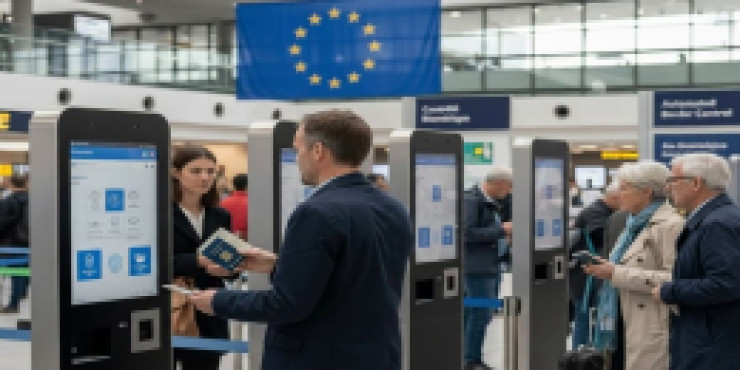The European Union has started a six-month rollout of its new Entry/Exit System, replacing passport stamps with digital checks to tighten border security and curb illegal migration.
12th October 2025 02:02 PM ![]()

European Union member states on Sunday began rolling out a new Entry/Exit System (EES) at the bloc’s external borders, marking a major shift to digital checks for travellers from outside the EU.
The automated system, which will be phased in over six months, requires non-EU nationals to register personal data on first entry, including passport scans, fingerprints and photographs. Subsequent journeys will involve only facial biometric verification.
The EES will replace traditional passport stamping, with full implementation set for April 10, 2026. EU officials say the system is designed to detect overstayers, combat identity fraud and strengthen border security amid mounting political pressure to curb illegal migration.
“The Entry/Exit System is the digital backbone of our new common European migration and asylum framework,” EU Internal Affairs and Migration Commissioner Magnus Brunner said. “The six-month rollout gives member states, travellers, and businesses time to transition smoothly.”
The changes will affect travellers entering the Schengen area, which includes most EU states plus Iceland, Norway, Switzerland and Liechtenstein, but excludes Ireland and Cyprus.
In the UK, British travellers using Dover, Folkestone’s Eurotunnel and London’s St Pancras International Eurostar terminal will undergo EES checks before departure. At Dover and Eurotunnel, the process starts with freight and coach traffic on Sunday, with passenger vehicle checks beginning in November and Eurostar introducing procedures gradually.
“We recognise that EES checks will be a significant change for British travellers, which is why we have worked closely with our European partners to ensure the rollout goes as smoothly as possible,” said UK Border Security and Asylum Minister Alex Norris. “These modernisation measures will help protect our citizens and prevent illegal migration.”